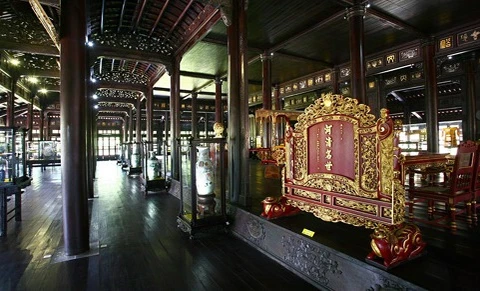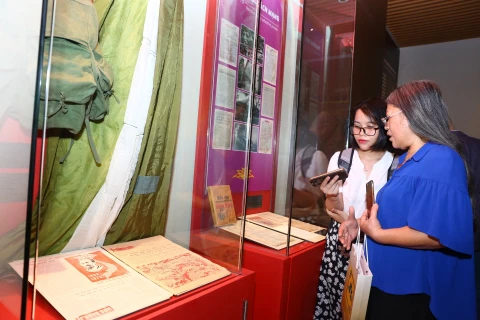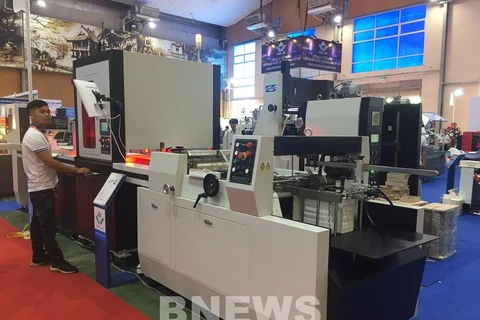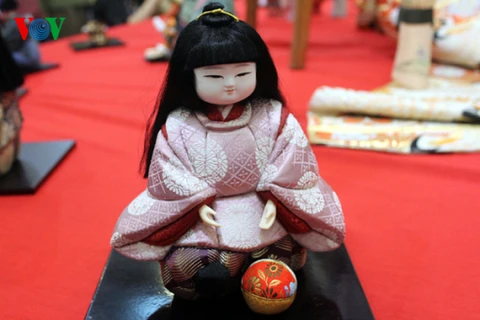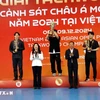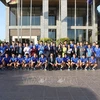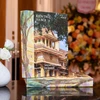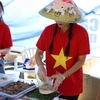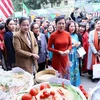Hanoi (VNS/VNA) - A new exhibition to be held on Con Dao Island from July 17 will look at the horrible conditions Vietnamese patriots faced when they were captured during the resistance wars against the French and the US.
Organised by Hoa Lo prison monuments management board and Con Dao National Monument Conservation Centre, the Words of Gratitude exhibition aims to celebrate the 73rd anniversary of the War Invalids and Martyrs Day that falls on July 27.
According to the organisation board, each document, artefact and image displayed in the exhibition will help viewers understand more about such “hells on earth” and the noble sacrifices of the patriots who died for national independence and freedom.
Words of Gratitude is divided into two main parts, the first of which includes stories about special “battlefields” – the system of prisons of the enemies. Though there was not much gunfire on this battlefield, it was where the bodies and lives of so many Vietnamese patriots were claimed during the wars to protect the nation.
At Hoa Lo Prison, built during the colonial time right in the heart of Hanoi, the lives of revolutionary fighters were constant struggles against the harsh imprisonment conditions for basic survival needs like water, food, mats or blankets.
Meanwhile, Son La Prison in the northern province of Son La is widely known among generations of Vietnamese due to its brutal conditions amidst the deep forest, with dark rooms of solid bricks and stones and three-metre-underground cells.
When the wooden door closed, each cell turned into a closed box in which the prisoners had to lie down and could not tell apart day and night. The solitary confinement used to house patriots like To Hieu, Nguyen Luong Bang and Tran Huy Lieu who significantly contributed to the revolution.
One of the most hated government buildings in colonial Saigon, the Maison Centrale de Saigon (Kham Lon Sai Gon) or Saigon Central Prison, included solitary confinement areas, cells for prisoners waiting to be executed, a guillotine room and execution area. It was the largest prison in Cochinchina, one of the symbols for the French colonial ruling system in the region at the time.
The exhibition will also feature Con Dao prison, dubbed “hell on earth” far from the mainland, where Vietnamese patriots had to deal with sophisticated and brutal imprisonment apparatus and starvation in the so-called tiger cages.
Other notorious addresses such as Phu Quoc prison, Tan Hiep prison and Chi Hoa prison will also be introduced.
The organising board will also exhibit many quotations and inspiring messages of revolutionary fighters before being executed like Nguyen Duc Canh, Nguyen Van Cu and Ha Huy Tap.
Part of the exhibition will be dedicated to famous prison breaks in Vietnamese history.
The most outstanding break was that of Con Dao prisoners on December 1952. Huge waves and fierce winds submerged the rudimentary boats made by the prisoners. Discovering the break, the enemies launched a fierce chase, arresting 117 revolutionary soldiers and claiming 81 lives.
The second part of the exhibition, also entitled Words of Gratitude, features post-war stories, told via images of thousands of no-name tombs in national Truong Son and Vi Xuyen war martyrs cemeteries.
The exhibition will run until July 31./.
Organised by Hoa Lo prison monuments management board and Con Dao National Monument Conservation Centre, the Words of Gratitude exhibition aims to celebrate the 73rd anniversary of the War Invalids and Martyrs Day that falls on July 27.
According to the organisation board, each document, artefact and image displayed in the exhibition will help viewers understand more about such “hells on earth” and the noble sacrifices of the patriots who died for national independence and freedom.
Words of Gratitude is divided into two main parts, the first of which includes stories about special “battlefields” – the system of prisons of the enemies. Though there was not much gunfire on this battlefield, it was where the bodies and lives of so many Vietnamese patriots were claimed during the wars to protect the nation.
At Hoa Lo Prison, built during the colonial time right in the heart of Hanoi, the lives of revolutionary fighters were constant struggles against the harsh imprisonment conditions for basic survival needs like water, food, mats or blankets.
Meanwhile, Son La Prison in the northern province of Son La is widely known among generations of Vietnamese due to its brutal conditions amidst the deep forest, with dark rooms of solid bricks and stones and three-metre-underground cells.
When the wooden door closed, each cell turned into a closed box in which the prisoners had to lie down and could not tell apart day and night. The solitary confinement used to house patriots like To Hieu, Nguyen Luong Bang and Tran Huy Lieu who significantly contributed to the revolution.
One of the most hated government buildings in colonial Saigon, the Maison Centrale de Saigon (Kham Lon Sai Gon) or Saigon Central Prison, included solitary confinement areas, cells for prisoners waiting to be executed, a guillotine room and execution area. It was the largest prison in Cochinchina, one of the symbols for the French colonial ruling system in the region at the time.
The exhibition will also feature Con Dao prison, dubbed “hell on earth” far from the mainland, where Vietnamese patriots had to deal with sophisticated and brutal imprisonment apparatus and starvation in the so-called tiger cages.
Other notorious addresses such as Phu Quoc prison, Tan Hiep prison and Chi Hoa prison will also be introduced.
The organising board will also exhibit many quotations and inspiring messages of revolutionary fighters before being executed like Nguyen Duc Canh, Nguyen Van Cu and Ha Huy Tap.
Part of the exhibition will be dedicated to famous prison breaks in Vietnamese history.
The most outstanding break was that of Con Dao prisoners on December 1952. Huge waves and fierce winds submerged the rudimentary boats made by the prisoners. Discovering the break, the enemies launched a fierce chase, arresting 117 revolutionary soldiers and claiming 81 lives.
The second part of the exhibition, also entitled Words of Gratitude, features post-war stories, told via images of thousands of no-name tombs in national Truong Son and Vi Xuyen war martyrs cemeteries.
The exhibition will run until July 31./.
VNA

